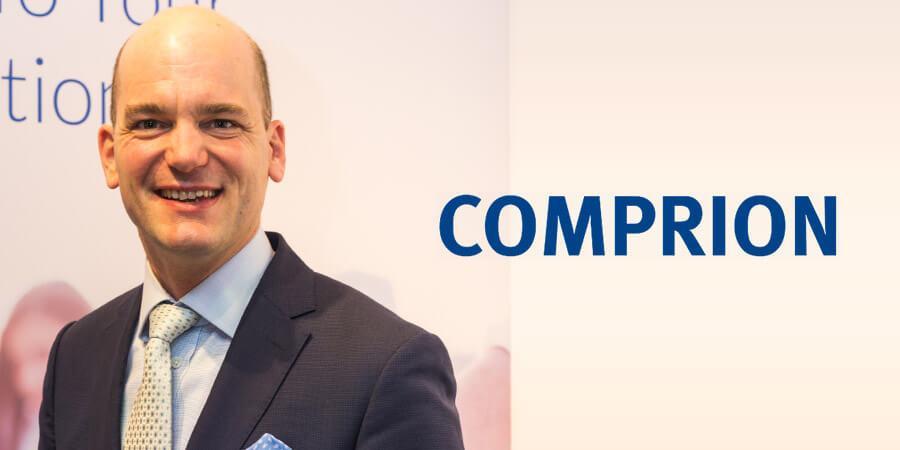Whether mobile payments at the point of service or access control in public transport, wherever near field communication (NFC) is used, errors can happen. German manufacturer of test equipment, COMPRION, has come up with a solution, according to Marketing Director Hajo Sandschneider, who spoke to Telecom Review about the company's undercover tracing of contactless payments.
Readers and devices that work reliably in stand-alone usage may not function properly when interacting, therefore analyzing the analog signals is essential for detecting the errors, according to COMPRION. In order to solve these communication problems in the field, the company has developed a mobile trace tool that comes with powerful analyzing software.
"Today we are trying to help payment schemes that push forward their services and we do that with something we call TraceCase which is a small tool that can be used by anyone (not necessarily a technical expert) to trace payment transactions while they occur," Mr. Sandschneider told Telecom Review. "This makes it very easy to ensure global interoperability before a roll-out or improve a system even after launch."
The technology supports debugging in the best possible way, the company claims, and provides customers with a smooth user experience. It offers discreet tracing of contactless communication in a wide range of application areas.
"Imagine you've been trying to do a tap-and-go payment and it doesn't work and you want to figure out why it isn't working. We offer this small tool which helps you to record the issue which can then be shared with an expert in the lab via email or cloud storage for analysis," Mr. Sandschneider explained.
"The expert can make sense out of the issue which can contribute to making the technology and all involved devices more robust," he added. "This shortens the cycle between updates of the technology and improving the service continuously."
The technology mainly targets technical consultants and application engineers for field trials and pilot projects, for example in the areas of access control, public transport and mobile payment. The benefits of the technology include the fact that it's simple to set up and it's small and mobile for discrete use.
"Let's imagine you're at a coffee shop. You queue up in the line until it's your turn to order your coffee and eventually pay for it. With our technology, you pay for the coffee as you normally would, and it will record the transaction for you in the field," said Mr. Sandschneider. "That will help payment schemes - and anyone involved in the mobile payments business - to improve their services. At the same time it does not disturb the regular business as your transaction is just another one but using and recording a specific payment method."
Another use case is public transport. Many metro systems in cities around the world rely on NFC or NFC-based services, said Mr. Sandschneider. If mobiles are being used to pay as passengers get on a bus, for example, they can record their transactions completely hasslefree.
"Public transport and payment systems are our strongest use cases for the technology, but any payment NFC-based system would be able to benefit from it," he said.
Using the advanced COMPRION software, the recorded data can be analyzed in-house or by a third party. Since not only digital but also analog signals are displayed and analyzed, errors on all layers can be recognized quickly and corrected, according to the company.
COMPRION contributes to telecommunications by validated test systems to give mobile phones, NFC devices and (m)POS terminals the approval stamp they need to get launched. The company's test solutions also help other companies such as phone manufacturers, credit card institutes, infotainment system designers from the automotive industry and manufacturers of payment terminals, NFC readers, antennas and M2M/IoT modules, to improve the quality and reliability of their products and services.
COMPRION has strong foundations in the telecom industry, having entered the payment sector because of contactless payment technologies emerging in the mobile market. Right now, the company is also involved with promoting the concept of SIM cards being embedded into smartphones the so-called eSIMs.
"There's been talk in the industry about SIM cards being soldered into devices so that it's not removable anymore but with the same functionality. The SIM card is the link between the customer and the device and the operator. That connection will always be there, but SIM cards just aren't that easily replaceable," said Mr. Sandschneider.
"With a soldered SIM it's still possible to swap between an operator which is called 'profile changing'," he added. "This is the idea of being able to change your subscription completely. For example, you can get a temporary profile from a local operator when you're traveling so you don't have to subscribe to roaming charges. Then once you're home, you can go back to your original profile."
The GSMA has come up with standards for the concept and right now the test specifications are being developed. COMPRION is part of the test expert groups and the company is currently helping to draw up test cases. At Telecoms World Middle East, where Telecom Review caught up with COMPRION, the company exhibited some of the test cases for the cards and also for devices carrying the in-built cards.
"Testing means are quite different than they used to be, but we have kept up with the changes in the industry and our tools can be used to test the cards and even the devices carrying the cards," said Mr. Sandschneider. "We have various tools to help people to familiarize with these new concepts that could flourish in the near future. I think integrating SIM card functionality into devices on chip-level is just the logical next step."










